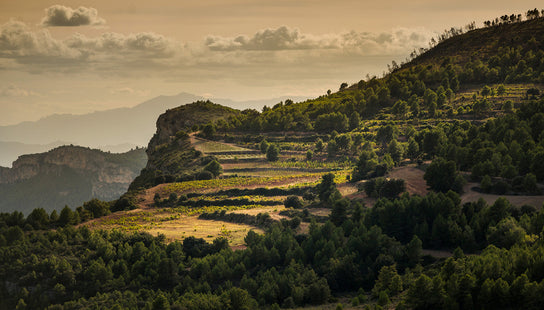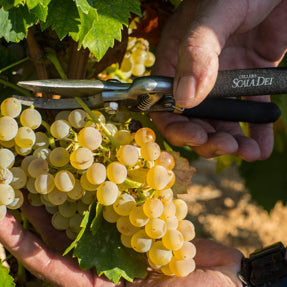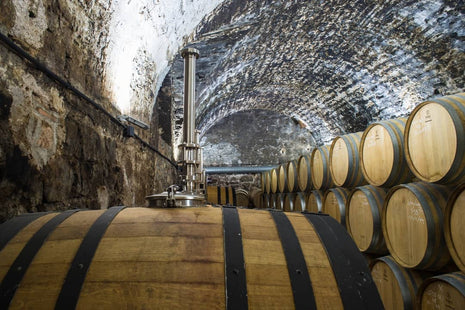
A privileged environment
At Cellers de Scala Dei we are fortunate to be located at the foot of the Montsant mountain range, a protected natural park, a natural and historic environment. We cultivate around 70 hectares of vineyards spread over 41 estates, 70% of which are planted with the Grenache variety.
A large part of our vineyards are planted at high altitude, with climatic characteristics that make Escaladei a privileged place for vine growing, resulting in high quality productions.

Respectful and sustainable viticulture
In the Scala Dei wine elaboration process, we advocate the viticulture and sustainable oenology, because we feel a deep respect for that soil that has always offered us high quality grapes.
All our vineyards They are cultivated in an organic way and ancestral, without herbicides or pesticides. Neither do we use insecticides to control pests and all treatments that we use in our vineyards are natural and ecological.
Let's not pay the vineyard With chemicals. We use sheep's manure as fertilizer.
Our goal in the vineyard is to reuse, if possible, all the by -products of the vinification process, the vineyard and pruning as composting for the soil.

Made with our own hands
All of our grapes are harvested by hand, in 20 kg boxes, discarding the bunches that do not meet the winery's requirements in the field and using them as fertiliser for the vineyard.
On arrival at the winery, the grapes undergo a second selection process. This, together with the meticulous analysis of the grape ripeness, and the separation of the different vineyards so that they ferment separately, means that, during Winemaking, it is not necessary to add chemical products.
To clarify the wine, we do not use animal products. Therefore, our wines are organic and vegan. We use bentonite, a very fine-grained clay that leaves the wines clean and allows for protein stabilisation. At the end of the process, we filter the wine with cellulose plates, also of natural origin.
The commitment to recycling is an important point in the winery's production. Likewise, our commitment to reduce our carbon footprint has led us to change the bottles of the wines with the highest production in the last two years for lighter ones. As they contain less glass, the energy cost of transporting them is lower and, in this way, we also reduce CO2 emissions.






